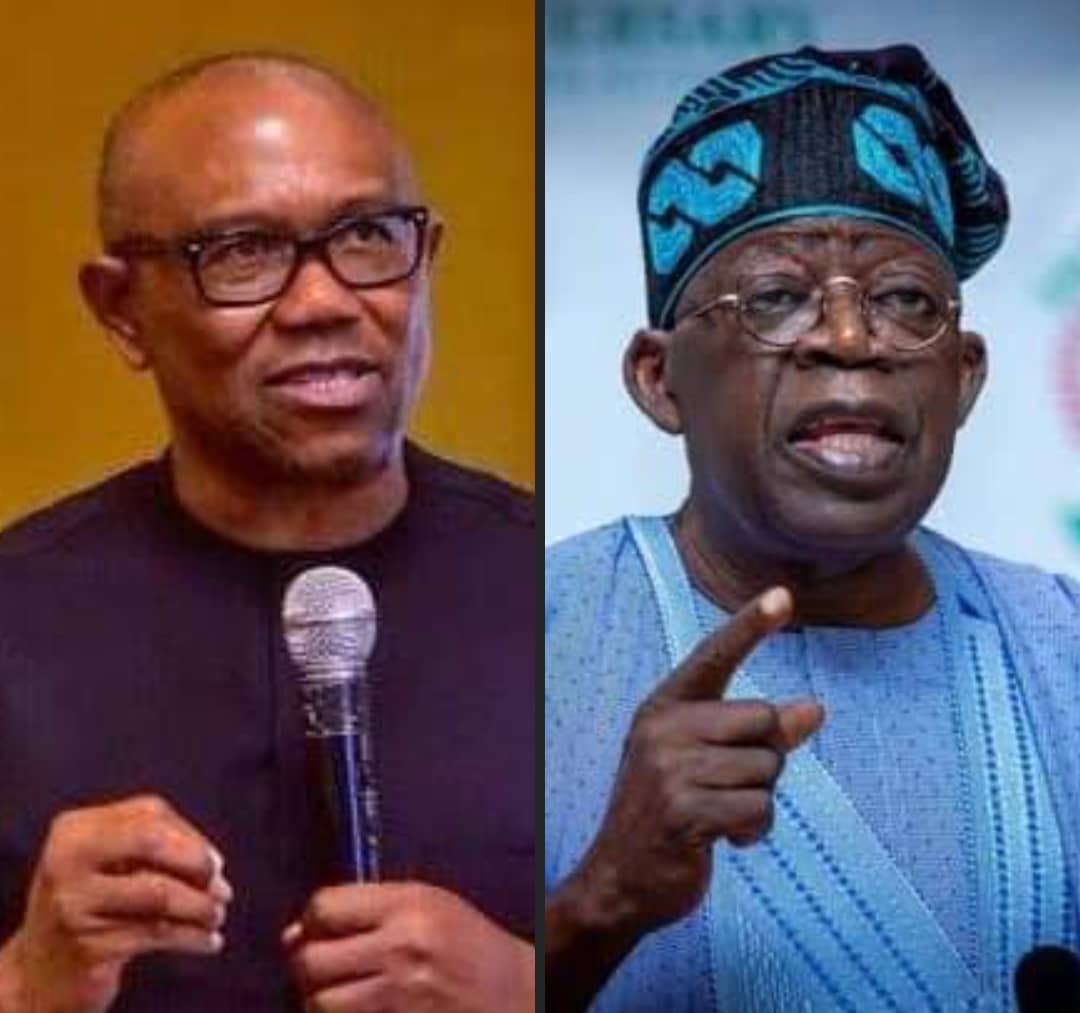The Independent National Electoral Commission (INEC) has argued that Labour Party’s presidential candidate, Peter Obi, failed to show how he scored the majority of lawful votes during the 25 February presidential election.
Mr Obi, who came third in the election, had filed his petition at the Presidential Election Petition Court in Abuja to challenge the outcome of the polls on the grounds of allegations of electoral fraud, among other alleged irregularities.

He urged the court to nullify President Bola Tinubu’s victory in the poll.
He also called on the court to either declare him the winner of the election or order a fresh poll.
Mr Obi and his party, LP, alleged that Mr Tinubu and Vice President Kashim Shettima were not qualified to vie for Nigeria’s presidency.
They alleged Mr Tinubu was convicted of drugs-related crimes and forfeited $46,000 in the US.
They also accused Mr Shettima of double nomination by their party, the All Progressives Congress (APC).
The petitioners contended at the trial of the case that Mr Tinubu was not duly elected by the majority of the lawful votes cast at the election.
Mr Obi called 13 witnesses to back his claims.
The five-member panel of the court led by Haruna Tsammani had ordered parties to the case to exchange their final addresses at the end of the trial.
In its final written address, INEC, through its lead lawyer, Abubakar Mahmoud, said Mr
Obi’s petition “lacks merits.”
Responding to allegations of Mr Shettima’s double nomination, Mr Mahmoud, a Senior Advocate of Nigeria (SAN), said the APC had, in a letter dated 6 July 2022, received on 13 July 2022 by INEC, withdrawn his candidacy for Borno Central Senatorial District to clear the way for his nomination as Mr Tinubu’s running mate.
He clarified that Mr Shettima’s voluntary withdrawal preceded his nomination as Mr Tinubu’s vice presidential pick.
Also addressing the issue of Mr Tinubu’s alleged trafficking of narcotic drugs in the US, Mr Mahmoud said, “There was no criminal charge, sentence or conviction to support the allegation of criminal conviction or forfeiture,” referencing a letter from the US government tendered during the defence.
In its final written address, INEC, through its lead lawyer, Abubakar Mahmoud, said Mr
Obi’s petition “lacks merits.”
Responding to allegations of Mr Shettima’s double nomination, Mr Mahmoud, a Senior Advocate of Nigeria (SAN), said the APC had, in a letter dated 6 July 2022, received on 13 July 2022 by INEC, withdrawn his candidacy for Borno Central Senatorial District to clear the way for his nomination as Mr Tinubu’s running mate.
He clarified that Mr Shettima’s voluntary withdrawal preceded his nomination as Mr Tinubu’s vice presidential pick.
Also addressing the issue of Mr Tinubu’s alleged trafficking of narcotic drugs in the US, Mr Mahmoud said, “There was no criminal charge, sentence or conviction to support the allegation of criminal conviction or forfeiture,” referencing a letter from the US government tendered during the defence.
He added that “the alleged order of forfeiture being that of a foreign court is not registered in Nigeria to be enforceable”.
The forfeiture order made by Judge John Nordberg of a United States District Court on 4 October 1993 “is in fact over 20 years since the alleged order was made,” Mr Mahmoud said, referencing Mr Tinubu’s defence in the case.
On the issue of INEC’s failure to upload polling units results of the presidential election to its Result View Portal in real-time on 25 February, Mr Mahmoud said that electoral officers “could not transmit” the image of the results to the IReV portal “due to the technical glitch that occurred on the e-transmission application hosted by Amazon Web Services…, this…technical glitch… was eventually resolved.”
INEC ‘s sole witness had, during his testimony, tendered the Amazon Cloud Trail in support of the claim that there was a technical glitch on the commission’s portal during the Presidential poll.
Mr Mahmoud said the evidence of INEC’s sole witness, Lawrence Bayode, an assistant director at the commission’s ICT department, “was uncontroverted.
Mr Bayode, during his testimony, stated that he was one of the persons who designed the INEC e-transmission system and helped resolve the technical glitch that occurred on election day.
“Petitioners neither pleaded nor demonstrated at trial any unlawful votes of the 2nd respondent (Mr Tinubu) to be discounted from the computed scores of the parties.
“… And did not present any lawful vote to be added to their own. This clearly shows…failure to lead any evidence to support same.”
25 per cent votes in FCT
On Mr Obi’s contention that Mr Tinubu ought not to be declared the winner of the election for failing to score 25 per cent of lawful votes cast in the Federal Capital Territory (FCT) in the presidential election, the commission said, “This clearly has nothing to do with lawful votes or unlawful votes”.
It noted that the issue “is clearly one of interpretation of the relevant constitutional provisions.”
Mr Mahmoud added in the INEC’s final address that Mr Obi failed to “lead credible evidence” to aid his case.
He said there was no “mandatory obligation prescribed by the Electoral Act” for INEC “to electronically transmit and collate results of the election…or to fully upload same on IReV before collation of results…”
In the court filing dated 14 July, Mr Mahmoud said, “The evidence presented by the petitioners (Mr Obi and LP) failed to make out a case that the 2nd and 3rd respondents are not qualified to contest the election.
“Section 134(2) of the constitution only requires a candidate to have scored the highest number of votes cast and at least one-quarter of the votes cast in two-thirds of all the States in the federation and the FCT as an aggregate of 37 States.
“The petition for want of evidence deserves to be dismissed and accordingly dismiss same.”







